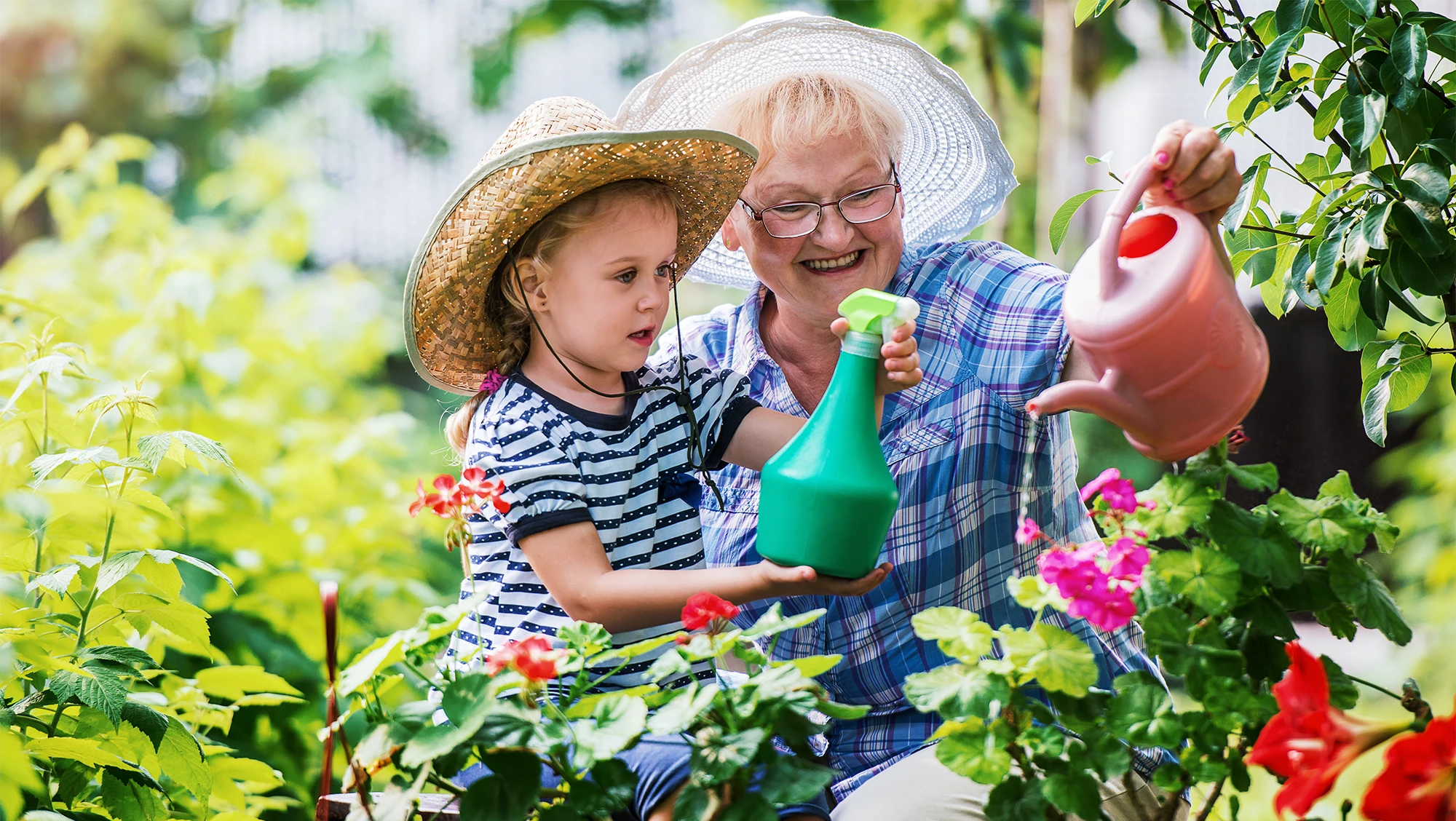
As we take in the beautiful summer weather, many of us turn to our gardens as a source of relaxation and enjoyment. If you have a loved one experiencing memory loss, they can also enjoy the outdoors by taking advantage of gardening and its many physical, mental and social benefits.
Physical Benefits
- Increase physical activity: Gardening is a great, low impact activity that can help improve cardiovascular health and strength. It can also be adaptable to seniors of all abilities with the usage of raised garden beds, hand trowels, and seats.
- Improve balance and coordination: Simple movements like planting, digging and watering can help improve coordination, and for those who can stand while gardening, also improve balance. An additional benefit to improving balance and coordination is a reduced risk of falls.
- Soaking in the sun for vitamin D: Spending time outdoors gardening can help increase vitamin D levels, which in turn aids bone health and strengthens immunity.
Mental Benefits
- Improve cognition: Focusing on gardening activities can help exercise the pathways in the brain that are crucial for attention and recall.
- Reduce stress and anxiety: Spending time outdoors and focusing on planting, watering or weeding can help reduce stress and anxiety. For many of those with memory loss who experience aggression, it can also help reduce those behaviors and improve overall mood.
- Stimulate the senses: Gardening can stimulate the senses, such as sight, smell, touch, and taste. This can be beneficial for people with memory loss, who may experience sensory impairments.
Social Benefits
- Promote social interaction: Joining a gardening group can provide the opportunities to form friendships, or if you have been looking for a new way to connect with your loved one experiencing memory loss, gardening together can be an enjoyable activity to share together.
- Learn new skills: Gardening can provide an opportunity to learn new skills, such as learning how to plant, watering, and learning about growing cycles. It can also be something to look forward to, such as eagerly awaiting a harvest or ripening of produce.
- Gain a sense of accomplishment: Gardening can provide a sense of accomplishment when plants grow and produce food, which can be beneficial for seniors experiencing memory loss as it gives them a sense of ownership and independence.
The team at Carefield Pleasanton is always available to answer your questions about memory loss and caring for your loved one, and the benefits of a community. Contact Carefield Pleasanton by calling (925) 750-8744 or visit www.CarefieldPleasanton.com today.






